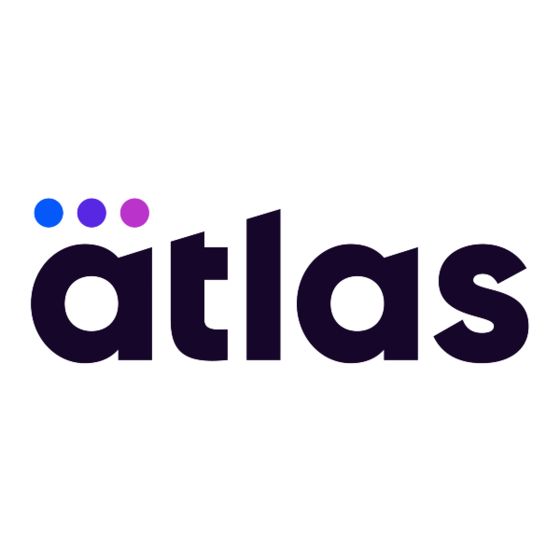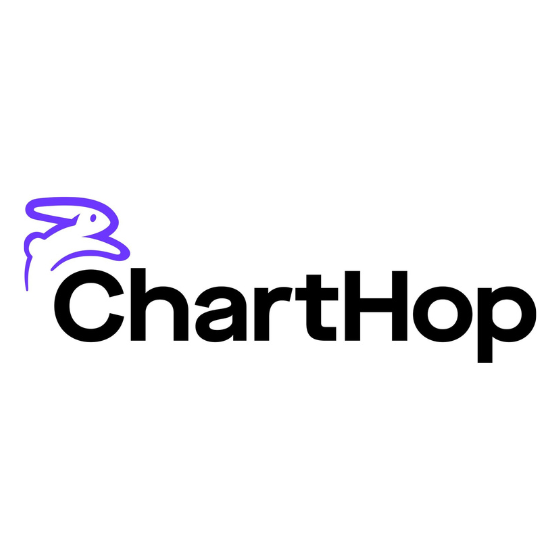Best Brazilian Employer of Record Service Shortlist
Here’s my pick of the 10 best Brazilian EOR companies out of the 20 options I’ve reviewed:
Talk through what you’re looking for. Get a custom shortlist based on your needs. No fees.
Are you ready to tap into Brazil’s talent market but feeling overwhelmed by local labor laws, tax obligations, and entity setup requirements? From registering with the Junta Comercial to managing strict labor code compliance, the legal andwork operational hurdles can stall your hiring plans before they even begin.
That’s where an Employer of Record (EOR) can help. A Brazil-based EOR can help you legally hire, onboard, and pay employees without opening a local entity. They handle employment contracts, tax filings, social security contributions, and benefits management, while also acting as an on-the-ground support system for your Brazilian staff. This gives your team the local presence they need, and gives you peace of mind that you’re operating in full compliance with Brazilian labor laws.
Sounds like a perfect solution, right? The hardest part is choosing an EOR partner.
To help you find the right partner, I’ve reviewed and compared leading EOR services that specialize in Brazil. Whether you’re hiring your first Brazilian employee or building out an entire team, this guide will help you choose a provider that fits your goals and keeps you compliant from day one.
Market Details for Hiring in Brazil
- Capital City: Brazilia
- Currency: Real (R$, BRL)
- Payroll Frequency: Monthly or Bi-Weekly
- Official Language: Portuguese
- Approx. Population: 217.6 Million
- Public Holidays: 13 days + regional variations
Why Hire Employees in Brazil?
Hiring employees in Brazil is rising in popularity since Brazil has the largest economy in South America, making it an attractive target for organizations looking to break into the South American market.
Brazil also has a strong presence in the tech industry, with a growing number of professionals skilled in software development, IT services, and digital marketing, particularly in large cities like São Paulo and Curitiba. The time zone in Brazil is also similar to North America, making Brazilian employees a good nearshore option for teams that need to collaborate live.
Why Trust Our Reviews
We've been testing and reviewing HR software + services since 2019. As HR professionals ourselves, we know how critical and difficult it is to make the right decision when selecting a new HR service provider to work with.
We invest in deep research to help our audience make better purchasing decisions. We've tested more than 2,000 tools and 200 service providers for different HR use cases and written over 1,000 comprehensive software reviews. Learn how we stay transparent, and take a look at our review methodology.
Best Employer of Record in Brazil: Pricing Comparison Chart
This comparison chart summarizes pricing details for my top Employer of Record selections for hiring staff in Brazil to help you find the best EOR service for your budget and business needs.
| Tool | Best For | Trial Info | Price | ||
|---|---|---|---|---|---|
| 1 | Best for offering local health benefits to Brazilian EOR employees | Free trial + demo available | From $29/month | Website | |
| 2 | Best for budget-conscious remote team expansion | Free demo available | From $25 - $199/user/month | Website | |
| 3 | Best for flexible global payment options | Free demo available | Pricing upon request | Website | |
| 4 | Best AI-driven EOR platform | Free trial available | From $579/month | Website | |
| 5 | Best for hiring and paying talent in Brazil | Free demo available | From $199/employee/month or $19/contractor/month | Website | |
| 6 | Best for localized approach to payroll | Free demo available | $99/employee/month | Website | |
| 7 | Best Brazilian EOR partner for enterprise organizations | Free demo available | From $595/employee/month or $49/contractor/month | Website | |
| 8 | Best for compliance with local laws and regulations | Free trial available | From $39/employee/month | Website | |
| 9 | Best for employment contract compliance | Not available | From $29/contractor/month to $499/EOR employee/month | Website | |
| 10 | Best EOR service for hands-on employee onboarding in Brazil | Free demo available | Pricing upon request | Website |
-

ChartHop
Visit WebsiteThis is an aggregated rating for this tool including ratings from Crozdesk users and ratings from other sites.4.3 -

Willo
Visit WebsiteThis is an aggregated rating for this tool including ratings from Crozdesk users and ratings from other sites.4.8 -

Boon
Visit WebsiteThis is an aggregated rating for this tool including ratings from Crozdesk users and ratings from other sites.4.7
Reviews of the Best Employer of Record Services in Brazil
To help you find the best EOR service for hiring Brazilian employees, I’ve described my top 10 selections in detail, including the specific services each provider offers and how HR teams can use them effectively. Additionally, I’ve listed 10 more EOR service providers for Brazil below if you’d like more options to consider.
Deel
Best for offering local health benefits to Brazilian EOR employees
Deel is a well-established employer of record platform that helps companies rapidly employ workers in 150+ countries, including Brazil.
Deel owns a local entity in Brazil staffed with legal experts to keep track of regulatory changes and ensure all legal obligations are met on your behalf. To hire a Brazilian employee with Deel, the average onboarding time frame is 3 days.
Why I picked Deel: Deel excels as an EOR service provider in Brazil by offering streamlined contract management, ensuring compliance with Brazilian employment laws. Deel also helps organizations offer localized employee benefits for Brazilian staff, including private health insurance, social security, a pension fund, workers’ compensation insurance, and meal vouchers.
In addition, Deel has launched several new offerings over the past year, including global payroll, global mobility support, integrated Slack tools, and advanced integrations. These services, all combined, facilitate efficient and compliant hiring processes within the Brazilian talent market.
Deel Key Services:
Deel offers end-to-end management for your Brazilian employees covering everything from hiring and onboarding to termination. Their web app is user-friendly and provides a range of features to help businesses manage their remote teams effectively, including contract management and expense tracking.
Their integrated contract management function supports advanced customizations such as stipends, signing bonuses, and stock options. You can also use Deel for visa and immigration support if you want to relocate existing employees to Brazil, with Deel managing the entire visa process for your organization in-house.
Deel offers 24/7 customer support and live chat and is known for its fast support.
Pros and cons
Pros:
- Comprehensive employee benefits
- Local compliance expertise
- Fast onboarding process
Cons:
- Potential complexity for first-time users
- Limited customization options
Remofirst is a global EOR service provider on a mission to free employers from geographical boundaries so they can build global teams with ease. They offer EOR services in 180+ countries, eliminating the need to set up multiple legal entities abroad.
Why I picked Remofirst: When it comes to hiring in Brazil, Remofirst is a great choice for businesses focused on remote team expansion without breaking the bank. The platform handles all the unique employment and tax regulations in Brazil, allowing you to hire local talent without needing to establish an entity in the country.
Another reason Remofirst is well-suited for hiring in Brazil is that it covers all aspects of compliance with Brazilian labor laws. Brazil has rules regarding employee benefits, severance, and working hours, and navigating this can be tricky if you're unfamiliar with local regulations. They'll also automatically calculate your team’s hours, time off, holidays, bonuses, and commissions so you don’t have to worry about it. Furthermore, to simplify your payroll process, Remofirst summarizes and aggregates your EOR invoices for review, showing each EOR employee’s salary in their local currency, including Brazilian Real (R$).
Remofirst Key Services:
Their team of legal experts and HR professionals will ensure your business operations are always compliant with changing Brazilian regulations, with compliance documentation accessible at all times through your secure dashboard. Their customer support team is also available 24/7 in case you need additional help. All clients also receive a dedicated account manager as their main point of contact.
On top of their EOR services, Remofirst also provides international payroll and invoice management, global benefits management (including insurance and equity plans, plus time-off management), and employee support with obtaining visas and other immigration documentation. They can even help you allocate equipment to your global employees. EOR pricing begins at $199/person/month.
Pros and cons
Pros:
- Robust employee support
- User-friendly platform
- Comprehensive compliance management
Cons:
- Service availability may vary by region
- Dependence on third-party providers for some services
G-P is a leading EOR service provider that assists companies looking to hire and manage employees in Brazil. Their AI-driven global HR platform streamlines international hiring, compliance, payroll, and benefits administration, ensuring a smooth onboarding process for Brazilian employees.
Why I picked G-P: G-P’s sophisticated global EOR platform is designed to handle complex regulatory environments, making it easy for businesses to hire and manage employees in numerous countries, including Brazil.
New hires can be onboarded in days, with locally-compliant contracts according to Brazilian laws. Using G-P, you also have the flexibility to pay your EOR employees in over 180+ currencies (including cryptocurrencies) using Venmo or bank transfers.
G-P Key Services:
G-P offers automated onboarding processes, real-time expense reporting, and a dedicated support team, all of which contribute to its reputation as one of the best EOR services in Brazil. They also support the compliant hiring of international contractors alongside full-time employees.
Their team includes local HR experts who understand the intricacies of Brazilian labor laws and cultural nuances and can also assist with global expansion plans and executing global transactions as needed. Furthermore, G-P has an AI assistant, Gia, which offers instant answers on local employment regulations.
Pros and cons
Pros:
- Easy and quick international hiring and onboarding process
- Strong compliance and risk management
- Comprehensive global employment platform
Cons:
- Dependence on the platform for all HR functions
- Limited customization options
Borderless AI is a global employer of record service that helps companies hire in 170+ countries, including Brazil, without opening a local entity. It supports businesses through EOR, payroll, and compliance tools, with AI at the core of its HR platform.
Why I picked Borderless AI: I added Borderless AI to this list because of its ability to help you hire quickly in Brazil without getting stuck in labor code or tax logistics. The platform handles local contracts, pays your team in Brazilian Real (R$), and keeps your employment practices aligned with Brazilian labor laws. That includes things like 13th-month salaries, social security (INSS), and severance (FGTS) obligations.
Another reason I included Borderless AI is that it’s built for scale. If you're hiring in Brazil as part of a larger global expansion, the platform's AI tools and centralized dashboard can make it easier to manage operations across multiple regions without adding extra admin work.
Borderless AI Key Services:
You’ll get access to features for global payroll, contractor payments, and EOR support in Brazil, all managed through one platform. Their HRGPT tool can help answer HR questions, while their AI-driven Contract Generator and Compliance Tracker are designed to help you create locally compliant employment agreements in minutes.
If you’re working with a mixed team, you can also manage full-time employees and contractors together, with tools for classification, compensation planning, and localized benefits. Clients are supported by a North America-based team and can access compliance docs and cost breakdowns from a single dashboard.
Pros and cons
Pros:
- Facilitates international expansion without the need for local entities
- Offers clear, flat-rate pricing
- Provides an AI-powered assistant
Cons:
- Reporting and analytics tools are not extensive
- Does not offer direct recruitment or applicant tracking functionalities
Skuad is a global HR platform that facilitates international hiring, payroll, and HR management for remote teams. It allows businesses to hire and pay employees and contractors in over 160 countries, including Brazil, without needing to establish local entities. When you hire them as your Brazilian EOR partner, they’ll manage the whole hiring process on your behalf, including creating employment agreements and other legal documents.
Why I picked Skuad: As part of their EOR service, Skuad offers remote onboarding and can facilitate payroll in multiple currencies. This includes the management of invoices as well as payroll automation. Skuad also offers robust compliance frameworks for local Brazilian employment laws, including visa and immigration processes, statutory benefits, and tax obligations.
Skuad Key Services:
Skuad's EOR services include employee benefits, time-off tracking, and managing tax compliance. As part of their global hiring service, they’ll handle all the required documentation on your behalf, including work permits and visas for your new hires and their dependents.
Beyond that, Skuad can also help you distribute computer equipment to your new employees, and track company assets like phones and other IT devices.
Pros and cons
Pros:
- Strong HR support
- Local compliance management
- Support for visas and work permits
Cons:
- Deductions limited to Enterprise plan
- Lack of platform customization
Native Teams is a global employment platform that enables companies to hire, onboard, and manage employees in over 85 countries—including the Netherlands—without having to establish a local legal entity. By acting as the legal employer, Native Teams handles everything from payroll and tax compliance to benefits and employment contracts, making it easier for companies to expand internationally.
Why I picked Native Teams: Native Teams stood out for its strong on-the-ground presence in the Netherlands and its localized approach to payroll and employment compliance. For businesses looking to hire Dutch talent quickly and legally, Native Teams offers an effective EOR solution that removes the administrative burdens of Dutch labor law. They’re especially helpful for companies that want to avoid misclassification risks or struggle with setting up statutory benefits and tax contributions.
Native Teams also provides added value by supporting relocation, handling Dutch work permits, and offering a fully compliant HR infrastructure. Their Netherlands-specific insights—like managing the minimum wage, public holidays, and remote work allowances—make them a capable partner for long-term employment compliance.
Native Teams Key Services:
Native Teams offers legal employment through its own Dutch entity, generating compliant local employment contracts and managing payroll, taxes, and social security obligations. Their EOR model includes localized benefits administration such as private health insurance and home working allowances, plus Dutch-language support and compliance guidance.
In addition to EOR services, Native Teams provides multi-currency payment options, dedicated expense cards, automated HR documentation, and employee-level support for onboarding, career growth, and contract navigation. They also assist with visa applications and provide relocation support for foreign hires moving to the Netherlands.
Pros and cons
Pros:
- Offers localized payroll calculators for accurate salary and tax computations
- Provides compliant employment contracts and documentation
- Enables hiring globally without establishing a local entity
Cons:
- Covers fewer countries than some competitors
- May not offer advanced HR tools beyond essential employment features
Atlas HXM offers innovative companies the tools they need to compete in a global economy. As one of the largest, direct EOR service providers, Atlas HXM believes businesses should be able to employ whomever they want, wherever the talent exists.
Why I picked Atlas HXM: They're a popular choice across numerous industries, including non-profits, financial services, oil & gas, energy, life sciences, pharmaceuticals, technology, and government, and they can tailor their service offerings to your needs, whether you're a new startup, an SME, or an enterprise organization.
Atlas is committed to widening the margins of entrepreneurship and employment alike. As such, their business model helps startups and SMBs compete on the international playing field—turning commercial innovations into viable global enterprises. In doing so, Atlas brings opportunities to local economies and the people who work there.
Atlas HXM Key Services:
Services include Brazilian-specific compliance monitoring, employee engagement and productivity monitoring, and guidance on safety programs to minimize business risks.
Their technology platform is supported by international experts who deliver flexible services to companies wanting to expand across borders, including into Latin America. Their services can help you onboard talent, manage compliance, and pay your global workforce without requiring a local entity or multiple third-party providers.
Pros and cons
Pros:
- User-friendly platform with localized support
- Comprehensive and customized onboarding
- Extensive local compliance expertise
Cons:
- Initial setup may require significant time and resources
- Limited customization options for specific HR policies
Agile Hero is an EOR service specializing in helping businesses manage their global workforce with ease and compliance. Their platform is renowned for streamlining international HR operations, making it an ideal choice for companies expanding into new markets.
Why I picked Agile Hero: I selected Agile Hero because of its focus on compliance with local laws and regulations. Brazil's legal landscape requires a partner with deep expertise in local labor laws, tax regulations, and employment standards. Agile Hero handles these areas, ensuring that businesses can operate easily and without legal complications.
Agile Hero Key Services:
Agile Hero offers a range of key services designed to simplify the employment process. Their EOR solutions handle everything from local contract management to payroll processing, ensuring timely and accurate payments while maintaining compliance with Brazilian tax laws. Additionally, Agile Hero provides visa and immigration support, helping businesses navigate the complexities of relocating employees to Brazil.
Beyond EOR services, Agile Hero also offers strategic HR consulting, aiding businesses in workforce planning, market-entry, and salary benchmarking. Their global mobility services ensure smooth transitions for employees moving across borders, and their comprehensive payroll software simplifies international payroll management.
Pros and cons
Pros:
- User-friendly interface
- Employee self-service portals
- Supports global mobility
Cons:
- Can be costly for smaller businesses or startups
- Limited customization options
Omnipresent is a global EOR service that helps businesses expand internationally by taking care of employment, payroll, and compliance needs. Whether you’re growing your team in one country or across multiple markets, Omnipresent simplifies the process, so you can focus on the core aspects of your business.
Why I picked Omnipresent: For businesses looking to hire in Brazil, Omnipresent offers localized expertise that can help you navigate Brazil's labor laws and regulatory environment. They ensure that your team members are fully compliant with Brazilian laws, managing things like social security (INSS), severance (FGTS), and healthcare coverage. They also handle employment contracts in accordance with Brazilian law
Omnipresent Key Services:
They also offer a global payroll platform that ensures that your employees are paid on time, in their local currency, and with full compliance. You can also rely on them for benefits administration, covering everything from health insurance to pension schemes in each country. If you're managing a remote or hybrid team, Omnipresent provides tools for tracking employment status and compliance across different regions.
Another benefit of working with Omnipresent is its HR support, which includes managing employment agreements and termination processes across countries.
Pros and cons
Pros:
- Easy to manage payroll for global teams in one platform
- Handles tax compliance across multiple countries
- Strong local expertise in employment regulations
Cons:
- Lacks integration options
- Delays in customer support response times
Safeguard Global is an established EOR provider that offers services in Brazil. Their platform simplifies international hiring, ensuring compliance with local labor laws and providing robust payroll solutions.
Why I picked Safeguard Global: They offer a streamlined process for onboarding employees, providing a positive employee experience while ensuring businesses remain compliant with local regulations. Their EOR services also include a dedicated support team to assist with every aspect of employee management.
This emphasis on localized expertise and hands-on support ensures that businesses receive timely and accurate assistance, enhancing the overall employee experience. For these reasons, they’re a top choice for companies looking to expand into the Brazilian market.
Safeguard Global Key Services:
Safeguard Global's in-depth knowledge of Brazilian labor laws ensures full compliance with local regulations, reducing the risk of legal complications. They offer customized payroll services that cater to the unique needs of each business. This personalized approach helps companies manage payroll efficiently, regardless of their size or industry.
Pros and cons
Pros:
- Dedicated support teams
- In-depth local market expertise
- Comprehensive compliance management
Cons:
- Possible delays in communication due to time zone differences
- Complexity in service offerings might require a learning curve
Other Brazilian Employer of Record Services
Here are some other EOR service providers in Brazil that didn’t make it into my top 10 shortlist, but are still worth considering:
- Mercans
For strategic HR advisory services
- Velocity Global
For navigating complex regulatory landscapes
- Europortage
For global mobility support within Latin America
- Remote
For competitive benefits packages
- Papaya Global
For an AI-based payroll engine
- Oyster HR
For EOR-related educational resources for clients
- Rivermate
EOR service for managing the local social security system
- Gibson Watts Global
For Spanish-speaking client companies
- Bradford Jacobs
For managing Brazilian payroll taxes
- Horizons
For a flexible EOR contract with no termination fee
Hiring in Brazil: Important Details
Here are some key details to note if this is your first time hiring staff located in Brazil. Your EOR provider will manage these compliance details on your behalf. However, proactively informing yourself of these details is always recommended before you invest your resources into sourcing staff based in Brazil.
In Brazil:
- Employment laws in Brazil are set by the Ministry of Labor and Employment (Ministério do Trabalho e Emprego, or MTE) in conjunction with different Labor Unions.
- You can hire employees (full-time, part-time, temporary, or seasonal) or contractors. Your Brazilian EOR provider can help you determine the best hiring option depending on your needs while helping you prevent employee misclassification errors.
- Most employment contracts in Brazil are for an indefinite term. However, fixed-term contracts and employment-at-will contracts are also permitted in certain situations. In an employment-at-will agreement, either party can terminate the relationship without cause.
- Brazil has both mandatory payroll deductions and social security contributions that must be collected, including the following:
- Income Tax (IRRF)
- Social Security (INSS)
- Severance Indemnity Fund (FGTS)
- Plus, contributions to other social programs and unions.
- Portuguese is the official language in Brazil. However, many Brazilian professionals also speak English.
- The standard working week in Brazil is 44 hours per week. This works out to 8 hours per day for 5 days, plus one 4-hour day on the 6th day. The maximum number of consecutive work days is 6.
- Overtime is considered any hours worked beyond 8 hours, in one day, with a maximum of 2 hours of overtime allowed per day. Employees who work overtime are eligible for 150% of their regular salary (or 200% of their salary if they work on a holiday). However, employees who work overtime from home do not receive an adjustment to their salary.
- Brazil uses a 13th-month salary system. Employees receive 12 monthly payments, plus an extra 13-month salary payment at the end of the year, typically around Christmas. (Note: some employment agreements split the 13th-month payment into two pay periods — often July and December — depending on the terms.)
- Paid vacation in Brazil starts at 30 days of annual leave per year, for employees who have worked for at least one year. Brazilian employees also receive a vacation bonus payment, which is equivalent to one-third of their monthly salary.
- There are 13 national public holidays in Brazil that employees are paid for, plus 23 other holidays that are celebrated regionally, including some holidays that are celebrated in Rio de Janeiro or São Paulo only). Understanding and complying with employment norms and legal requirements surrounding Brazilian public holidays is one area where your EOR service will shine, managing these occurrences hassle-free on your behalf.
- National public holidays in Brazil include:
- New Year's Day (January 1)
- Shrove Tuesday (February 16)
- Carnival (February/March, date varies)
- Good Friday (April, date varies)
- Easter Sunday (April, date varies)
- Tiradentes' Day (April 21)
- Labor Day (May 1)
- Corpus Christi (June 3)
- Independence Day (September 7)
- Our Lady of Aparecida (October 12)
- All Souls' Day (November 2)
- Republic Day (November 15)
- Christmas Day (December 25)
- Brazil offers maternity leave and paternity leave.
- The maternity leave entitlement is 120 days, with the ability to extend it by 4 weeks for medical needs, or up to 180 days if the employer or EOR is registered with Empresa Cidade.
- The paternity leave entitlement for fathers is 5 working days, or up to 20 days if the employer or EOR is registered with Empresa Cidade.
- Employees receive 100% of their wages while on maternity leave or paternity leave.
- The Empresa Cidade Program was initiated by the Brazilian government to promote corporate social responsibility and offer employees support beyond the minimum legal requirements.
- Paid sick leave is 15 days in Brazil. If an illness extends beyond 15 days, the employee can receive financial support from the Social Security System (INSS).
- Other leaves that are mandated in Brazil include 3 days for Marriage Leave and 2 days for Bereavement Leave.
- The probationary period in Brazil is 45 days, but it can be extended up to 90 days.
- The termination terms in Brazil vary depending on the type of employee contract and which party initiates the termination. This is another area where a local Brazilian EOR can provide assistance to ensure the probation period and related severance are handled correctly.
- Severance pay is offered to terminated employees in Brazil. The final severance payment calculation differs depending on the notice period and the terms of the termination. However, Brazil also has a Severance Fund (FGTS) that employees can access upon termination. During employment, employers are required to contribute 8% of an employee’s salary to the FGTS.
Selection Criteria for Employer of Record Brazil
Uncovering the best EOR services for this list required a deep understanding of how these services can alleviate common challenges, such as legally hiring employees abroad, managing international payments, ensuring compliance with local labor laws, providing competitive benefits, and facilitating smooth onboarding.
Here are the specific criteria I used to carefully compare the service offerings for each provider in this list:
Core Employer of Record Services (25% of total score): To be considered for inclusion in this list, each EOR provider had to offer the following basic services first:
- The corporate structure to legally and compliantly hire employees in multiple countries without a local entity
- The ability to manage multi-national payroll and taxes in compliance with local regulations
- Assistance with offering competitive and locally compliant benefits packages
- Assistance with navigating visa and work permit processes for expatriate employees
- Robust procedures to ensure data privacy and security that comply with international standards, including GDPR and other requirements
Additional Standout Services (25% of total score): To help me narrow in on the best EOR services out of the numerous options available, I also took note of any unique or less common services, including:
- Advanced technology platforms that streamlined payroll and HR processes while still offering ease of use
- Specialized experience in hiring employees within specific new countries or key industries
- Services that enhance remote work compliance and global mobility needs
- Specialized customer support for complex immigration cases
- Assistance with international IT requirements, including managing computer equipment, software licenses, and other asset-tracking requirements
- A focus on eco-friendly and sustainable employment practices
Industry Experience (10% of total score): To evaluate the industry experience of each EOR service provider, I considered the following:
- How many years their business has operated in the EOR space
- Any industry recognitions or certifications the provider may hold in international HR and payroll
- Their depth of knowledge in local labor laws across multiple jurisdictions
- Their expertise in new markets, including how many different countries they offer local expertise in
- Evidence of a strong track record managing global expansion processes
- The combined experience and credentials of their team members, if available
Customer Onboarding (10% of total score): To get a sense of each provider's customer onboarding process, I considered the following factors:
- The availability of comprehensive onboarding materials, such as fact sheets, guides, FAQ repositories, or other training resources
- Support for integrating the EOR provider's software with existing HR systems
- Direct access to onboarding specialists, customer support, or a dedicated account manager during the setup phase
Customer Support (10% of total score): Since the EOR provider will act as your remote workers' legal employer, it's important to ensure you'll receive timely communications and top-level support. To evaluate the level of customer support each company offered, I considered the following:
- The availability of a multilingual support team that covers different time zones
- Multiple support channels, including phone, email, and live chat
- Evidence of responsiveness and effectiveness in resolving issues, as inferred from customer reviews
- The existence of dedicated account managers to provide assistance as needed
Value for Price (10% of total score): To gauge the overall value of each service, I considered the following factors:
- Transparent pricing models without hidden fees
- Comparative analysis of service offerings versus cost
- Flexibility in service packages to suit different business sizes and needs
Keep in mind that EOR services are complicated, and because of that the price tag can sometimes be high. However, the prices for their services still offer a good ROI considering the complexity of the premium-grade services you're gaining.
Customer Reviews (10% of total score): Evaluating customer reviews is the final element of my selection process, which helps me understand how happy real users are with a service. To determine this, I considered the following factors:
- Consistently high ratings across various consumer review platforms
- Specific feedback on the ease of use of the EOR services
- Testimonials highlighting exceptional customer support and problem resolution
Using this assessment framework helped me identify the employer of record services that go beyond basic requirements to offer additional value through unique services, deep industry experience, smooth onboarding, effective support, and overall value for price.
What is an Employer of Record in Brazil?
A Brazilian Employer of Record (EOR) is a third-party service that legally hires employees on your behalf. While you maintain control over their day-to-day work, the EOR takes care of everything else. That includes handling payroll, tax deductions, benefits, and full compliance with Brazil’s complex labor laws.
By partnering with a local EOR, you don’t need to set up a legal entity or navigate regulations alone. It’s a streamlined way to hire Brazilian talent while staying compliant and protecting your business from legal risk.
Instead of requiring your HR team to master Brazilian labor laws and regulations, you can delegate these responsibilities to a local EOR in Brazil and gain peace of mind that your global operations will be compliant.
EOR vs Legal Entity
Since you're considering hiring in Brazil, one of the first decisions you'll face is whether to partner with an EOR or set up your own legal entity. Both options allow you to employ Brazilian staff, but they differ significantly in complexity, cost, and speed to market.
Here’s a quick side-by-side comparison to help you understand the key differences:
| Aspect | Employer of Record (EOR) | Legal Entity Setup in Brazil |
|---|---|---|
| Setup Time | A few days to a couple of weeks | Several months (due to registration requirements) |
| Upfront Costs | Low; typically pay per employee + service fee | High; includes legal, accounting, and admin costs |
| Legal Responsibility | Held by the EOR provider | Held by your company |
| Local Tax Registration | Managed by the EOR | Must be registered with Receita Federal |
| Payroll | Handled by the EOR | Requires in-house or outsourced expertise |
| Compliance | EOR ensures adherence to Brazilian labor laws (Consolidation of Labor Laws - CLT) | You must understand and maintain compliance independently |
| Language & Bureaucracy | EOR handles Portuguese documentation and local processes | Requires Portuguese fluency and navigation of bureaucracy |
| Employment Contracts & CLT | EOR provides contracts compliant with CLT regulations | You must draft and manage CLT-compliant contracts |
| Flexibility | High; great for testing new markets | Lower; more complex to scale or exit |
| Control Over HR Ops | Moderate | Full control |
| Best For | Fast hiring, testing markets, remote teams | Long-term operations, large-scale local presence |
Using an EOR is often the faster, lower-risk path to hiring in Brazil—especially if you're testing the waters or scaling remote teams. However, if you're planning a long-term presence with high headcount, setting up a legal entity may make sense down the road.
How to Choose an Employer of Record in Brazil
The right EOR service can remove major roadblocks to hiring in Brazil—but only if it aligns with your specific needs. Before comparing providers, clarify the challenges you’re facing and the outcomes you’re aiming for.
Here are five key questions to guide your selection process:
- What challenge are you trying to solve?
Are you struggling with payroll in Brazilian Real (R$), navigating complex labor laws, or offering competitive benefits? Be specific about what you want help with—like hiring in particular geographic states or municipalities (municípios) or ensuring full tax compliance. - Who will benefit from the EOR?
Think about the internal stakeholders managing the relationship. How will it improve their workload, processes, or confidence in global hiring? - What's your budget?
Estimate how many employees you plan to hire. Since EOR fees are typically charged per employee per month, this helps forecast your total costs. - What outcomes matter most?
Do you need fast hiring in certain regions, better compliance support, or smoother onboarding? Define your success metrics up front to avoid wasting time on mismatched options. - Will it work with your HR systems? Consider how the provider’s platform integrates with your current HR tools. Look for solutions that support your workflows, not complicate them.
Remember every business is different — don’t assume that a Brazilian employer of record service will work for your organization just because it's popular. Instead, choose the partner that can satisfy your needs for a fee that works for you.
Trends in Employer of Record Services
With global hiring on the rise, businesses are demanding faster, smarter, and more compliant ways to manage international teams. In response, EOR services are evolving, pairing legal expertise with tech-driven platforms that streamline onboarding, payroll, benefits, and cross-border compliance.
Here are some of the latest trends shaping EOR solutions and the HR tech behind them:
- Immigration Support: There is a growing demand for assistance with immigration services like visa and work permit sponsorships, simplifying global talent acquisition processes for client companies immensely.
- Specialized Services for Diverse Needs: Several EOR providers have begun to offer IP and invention rights protection and equity incentive planning services, to cater to the specific needs of their client companies.
- Enhanced Employee Benefits Packages: There's a growing trend in EOR providers going beyond standard healthcare coverage to offer a full spread of enterprise-level medical and health benefits, stock options, and even one-time benefits like moving bonuses. This trend demonstrates an understanding of the importance of attracting and retaining top talent globally.
- AI-Backed Knowledge Bases: Some EOR providers (including Deel) are beginning to offer legally vetted knowledge bases or information wikis that use artificial intelligence to surface answers to common questions quickly. This helps customers source details on hiring within a specific country quickly, without relying on human-run support systems.
As the market continues to evolve, these trends are likely to shape the future of international employment, making it easier for businesses to navigate the challenges of global expansion. For a closer look at specific EOR providers that are capitalizing on these trends, I recommend reading our in-depth reviews of Oyster HR, Omnipresent, Skuad, and Deel.
Key Employer of Record Services
An Employer of Record (EOR) simplifies hiring and compliance in Brazil by managing payroll, tax obligations, and labor laws. Key services include:
- Payroll in BRL: Ensures accurate payments in compliance with Brazilian labor laws, including the Consolidation of Labor Laws (CLT), covering salary, overtime, and record-keeping. This prevents penalties from the Ministry of Labor and Employment (MTE).
- Tax Compliance and FGTS: Handles Income Tax (IRRF), Social Security (INSS), and the Severance Indemnity Fund for Employees (FGTS) contributions, ensuring adherence to Brazilian Federal Revenue (Receita Federal) requirements.
- Labor Law Compliance: Provides expertise on Brazilian employment regulations under the CLT, including vacation, 13th salary, and weekly rest periods, ensuring compliance with domestic labor laws and alignment with global workforce laws and conventions.
- Talent Acquisition and Background Checks: Conducts industry-specific credential verification and background checks to ensure new hires meet Brazilian certification requirements and legal standards.
- Visa and Work Permits: Assists with securing the appropriate Brazilian visas and work permits for foreign workers, ensuring compliance with regulations set by the National Immigration Council and the Ministry of Justice.
- Onboarding and Offboarding: Manages compliant employee onboarding and terminations, in line with Brazilian labor laws, reducing the risk of labor disputes or claims.
- Benefits Administration: Provides competitive benefits, including health insurance, meal vouchers (vale refeição), and transportation vouchers (vale transporte), tailored to the Brazilian market.
- HR Support: Offers ongoing consultation on Brazilian employment laws, workplace safety (NR), and compliance with mandatory labor documentation (eSocial).
- Risk Management and Insurance: Oversees workers' compensation (Seguro de Acidentes do Trabalho) and ensures compliance with local insurance and indemnity requirements to mitigate legal and financial risks.
- Multi-Language Support: Facilitates communication with Brazil’s diverse workforce through the translation and localization of legal documents.
Benefits of an Employer of Record Service
Hiring internationally can open new doors, but it also brings legal, payroll, and compliance challenges that can slow you down. An EOR lifts those burdens, making it easier to grow your global team without taking on the risk or complexity of setting up a local entity.
Here’s what you'll gain by partnering with an EOR:
- Quick Market Entry: For organizations aiming to test new markets or hire talent in new countries where they have no legal presence, an EOR offers a swift and efficient solution to initiate operations, saving time and resources.
- Simplified Global Payroll: Using an EOR service simplifies the complex process of managing international payroll, including tax deductions, withholdings, and currency conversions for your employees worldwide.
- Global Compliance & Risk Mitigation: By managing compliance, an EOR service provides expertise in navigating the intricacies of employment laws, tax regulations, and insurance requirements in multiple jurisdictions, helping businesses safeguard their operations against compliance-related risks.
- Enhanced Benefits Negotiation: By leveraging their extensive networks and purchasing power, EORs can negotiate better international insurance rates and secure competitive benefit packages on your behalf, enhancing your ability to attract and retain top talent worldwide.
- Improved Cost Effectiveness: Using an EOR service is a cost-effective way for businesses to enter new markets, compared to the significant costs of establishing a new foreign entity. The latter option involves significant upfront legal fees, plus other costs related to office infrastructure, staffing, and local benefits and insurance coverage.
Understanding the benefits of an EOR service is crucial for strategic planning and operational efficiency. As businesses look towards international markets for growth opportunities, partnering with an EOR provider offers a streamlined, cost-effective, and compliant pathway to global expansion.
Costs & Pricing for Employer of Record Services
Typically, the cost of an EOR service follows a fee per-employee, per-month pricing model, which can vary widely depending on a range of factors. This model allows for scalability and predictability in budgeting for international expansion efforts.
In general, EOR services in Brazil cost between $300 to $600 per employee, per month.
Alternatively, some EOR services in Brazil charge a percentage of the employee’s salary, ranging between 10% to 20%.
Key factors that can influence the pricing of an employer of record service include:
- Geographic Location: Costs can vary significantly based on the country or countries you're hiring in. This is due to local economic conditions, labor laws, and the complexity of compliance requirements.
- Employee Seniority and Role Complexity: The level and nature of the roles being filled can also impact the monthly cost. Senior positions or roles requiring special qualifications may increase the price due to higher benefits and compensation management costs.
- Number of Employees: The total number of employees being managed can also impact the cost. In some cases, higher volumes may lead to volume discounts, making per-employee costs more economical.
- Custom Requirements: Any specific needs beyond the standard service offering may also contribute to the monthly cost. This may include customized solutions for recruitment, specialized employee onboarding, or unique compliance requirements, all of which can affect pricing.
Some EORs also operate under different pricing models, including a percentage of employee salary model, a fixed pricing model, and custom pricing models. If you'd like to delve deeper into the different factors that influence prices, my article explaining the intricacies of different EOR pricing models is a natural next step.
Evaluate EORs based on cost, reputation, and whether you’ll actually use their bells and whistles. Some are expensive because they white-label services through local partners.
When considering an EOR service, it is crucial to understand how these factors impact the overall cost to ensure that the service aligns with your business's needs and budget constraints. Anticipating the specific requirements of your international expansion strategy will help you choose the most cost-effective and efficient EOR solution for your needs.
FAQs about EOR Services in Brazil
If you’ve got specific questions about the requirements to hire Brazilian employees or how EOR services work, these answers to frequently asked questions are a good place to start:
What does an Employer of Record do?
An Employer of Record (EOR) is a third-party service that hires employees on your behalf in countries where you don’t have a legal entity. While you direct your team’s daily work, the EOR handles payroll, tax deductions, onboarding, and compliance with local employment laws.
This setup lets you access global talent quickly, without the legal risk or complexity of setting up an office abroad. The EOR becomes the legal employer, so you stay focused on growing your team, not navigating foreign regulations.
What are the minimum wage requirements in Brazil?
As of January 1, 2024, the national minimum wage in Brazil is BRL 1,412 per month. This represents a 6.97% increase from the previous year’s minimum wage of BRL 1,320. This adjustment is part of the Brazilian government’s efforts to improve the earning potential of workers and enhance their purchasing power in response to inflation and economic conditions (Agência Brasil) (Brazil Counsel).
In addition to the national minimum wage, some states and regions in Brazil have their own minimum wage levels, which can be higher than the national rate. Employers need to be aware of both the national and regional wage requirements to ensure compliance
To see a visual representation of these changes over time, review this graph of Brazil’s monthly wage minimums by Statista.
Do EOR providers offer other types of global HR services?
Yes, most of the time they do. Many service providers in this space also offer professional employer organization services (also known as PEO services), as well as global payroll services.
PEO services are a way of outsourcing your HR function to support your international teams. PEO companies can help you with international compliance issues, benefits administration, workers’ compensation, and other HR administrative tasks.
Global payroll providers help multinational companies pay remote employees or independent contractors within a unified payroll run. They manage in-country compliance requirements and juggle payments in multiple local currencies on your behalf.
What are some of the consequences of non-compliance?
As an organization, you never want to be deemed as non-compliant in the eyes of any government body. The exact rules and regulations will vary according to the jurisdiction you’re operating in, which is one of the main benefits of using an EOR service provider.
If you don’t use an EOR and you do hire international workers, you may quickly find yourself in non-compliance. The consequences of doing so will depend on the severity of the violation, but they could include all of the following:
- Fines and penalties
- Legal actions such as lawsuits or other litigation proceedings
- Corrective measures and compliance orders
- Revocation of business licenses or operating permits
- Reputational damage if the news becomes public (loss of public trust and loss of internal employee respect)
- Increased monitoring and additional government scrutiny
Companies who fail to follow international labor laws cannot simply say they were unaware of the legalities, and hence, didn’t follow them. That’s where an EOR service can really remove a lot of potential risk and liability from the international hiring process.
Are there any risks to using an Employer of Record service?
While EOR services offer major advantages, like faster hiring and simplified compliance, they aren’t entirely risk-free. As with any partnership, it’s important to understand the potential downsides before choosing a provider.
Here are a few risks to keep in mind:
-
Financial risks: Unexpected fees can arise for onboarding, offboarding, or additional HR services. EORs may also charge separately for mandatory benefits in some countries. And, because payroll often involves currency exchange, fluctuations can impact your overall costs.
-
Operational risks: You’re entrusting sensitive employee data to a third party, so strong data security is essential. Look for providers with clear policies, certifications (like ISO 27001), and robust incident response protocols.
-
Strategic risks: Since the EOR becomes the legal employer, you’ll give up some control over HR processes, which could affect decision-making. And if your EOR delivers a poor employee experience or operates unethically, it could reflect poorly on your brand.
Carefully vetting EOR providers, and understanding the terms of your agreement, can help mitigate these risks and ensure a strong global hiring foundation.
What is a nearshore vs offshore employee?
A nearshore employee is based in a country closer to the company’s location, typically within the same or a nearby time zone, making collaboration and communication easier due to the smaller time difference.
For North American companies, nearshore remote workers may reside in Canada, the Caribbean, or Central or South America.
An offshore employee is located in a country far from the hiring company’s home base, often in a different time zone, to capitalize on cost savings and increase access to a broader talent pool.
For North American companies, offshore remote workers may reside in Asia, Africa, or Europe.
Gain Access to the Best Talent with an EOR in Brazil
If you made it this far, I hope you have a better sense of how EOR services can simplify the process of hiring Brazilian employees. They're truly a valuable resource, whether you're an enterprise organization looking to snap up the top talent in Brazil, or a small business or startup trying to break into the Brazilian talent marketplace without launching your own entity.
If you found this article helpful, I recommend signing up for our weekly People Managing People newsletter too. You'll get access to the latest insights from thought leaders, as well as our latest podcasts, and more software and service recommendations.


























